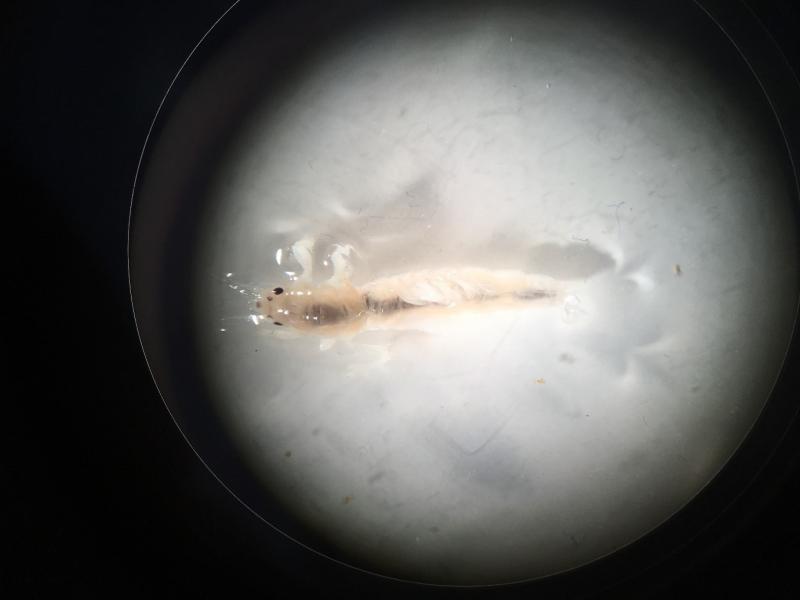Jess Picken was the first to contribute to our new series of guest blogs in which she outlined plans for her PhD. And clearly, she has been busy! She is back with an update already...
To recap on my previous post, numerous studies have reported that low flow reduces the density of salmonids within streams. What is not so well-known is what, or how, other parts of the salmonids’ ecosystem are also affected by low flow. Riverflies and other aquatic macroinvertebrates make up a large proportion of juvenile salmonid diet, which is subsequently reflected in salmonid growth rate, condition and survival. Understanding how the availability of these macroinvertebrates changes with reduced summer flow is important to help conserve fish species of high UK and European importance.
My life at the moment... macroinvertebrates down the microscope!




